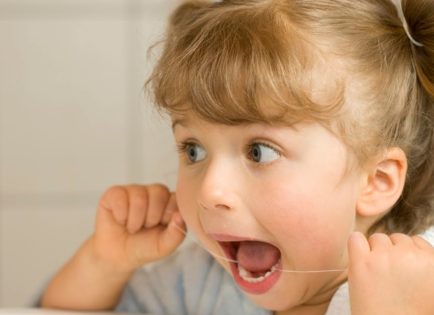Will The Dentist Know If I Don’t Floss My Teeth?
Posted by nmcclees
Will the dentist know if I don’t floss my teeth? Yes, yes. Your dentist knows!

Let’s talk about what happens when you don’t floss. If you aren’t flossing, you are neglecting to clean about 40% of each tooth! Not cleaning such a big portion of your teeth can lead to, you guessed it, lots of problems. Some of these problems include:
1. Bad Breath
Probably the most minor problem on the list, but still not desirable. If you are not fully cleaning your mouth, naturally, things left behind will start to emit an odor. And not a pleasant one.
2. Plaque + Tarter Buildup
While your toothbrush will go a long way toward keeping your teeth healthy, it cannot reach all the spots that floss can. Flossing is the only way to access the sticky film (plaque) that is made up of bacteria and food residue between your teeth. If the plaque stays on the surfaces of your teeth for too long, it will harden into tarter. Then, only a dentist can remove it using special tools.
3. Cavities
When you cannot clean the plaque and tarter from your teeth, you will start to develop cavities. If these cavities are in the spaces in between your teeth, imagine how difficult they are to fill. Not fun.
4. Gingivitis + Periodontitis
Your teeth are not the only things that become damaged when you do not floss. You may also develop gingivitis. Gingivitis is a condition in which your gums become inflamed, red, and sore. Ow! If this goes on without any treatment, it can get worse and turn into periodontitis. This is an advanced gum disease that can be very painful while bacteria eat away at your gums and even the bone that holds your teeth in place. Not cool.
5. Tooth Loss
An environment with cavities and gum disease is not a great place for teeth. Teeth may end up needing to be extracted or can end up falling out on their own if the cavities or gum disease are severe enough.
Oral health also effects the rest of your body. Bacteria and inflammation in the mouth can increase your risk of conditions such as heart disease. Additionally, your mouth is left vulnerable to other risky contaminants that could lead to infection. Oral infections can easily spread throughout your body and cause serious illnesses.
Makes you want to jump up and go floss your teeth now, right?
It is never too late to start flossing. Even if you never have flossed before, start now!
If you have not been flossing, your gums may bleed a little bit when you first start. A saline rinse (a mixture of warm water + salt) can help soothe any soreness if it is too bothersome, but don’t give up! This should stop after a week or two, but if it persists, please come in for a visit so that we can see if there is something more serious going on.
Have questions or need a little bit of guidance? Or maybe you just want to come show-off your flossing skills. Come on in! We are here to help and here to give you a high five!

